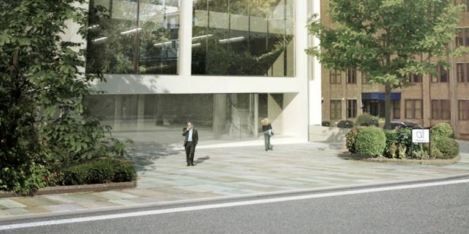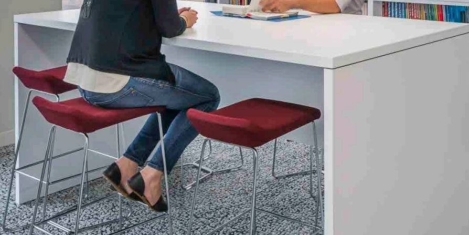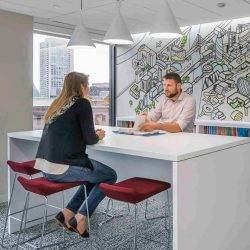July 15, 2018
British businesses missing key productivity and skills boost by ignoring military veterans
 Businesses are missing out on key opportunities to boost their skills base and productivity by not effectively employing well-qualified former military personnel, according to new information released by The Institute of Leadership & Management. According to The Institute, 86 per cent of veterans say business managers still don’t understand how military honed skills can transfer into boosting businesses on civvy street. Coinciding with both Armed Forces Day and the 100th anniversary year of the ending of World War One, The Institute of Leadership & Management has released its new report Tales of Transition (registration required), which claims to identify the barriers to helping ex-forces personnel enter the civilian workplace. The report also details the steps that business leaders can take to support the transition of around 15,000 people who leave the UK Regular Armed Forces each year.
Businesses are missing out on key opportunities to boost their skills base and productivity by not effectively employing well-qualified former military personnel, according to new information released by The Institute of Leadership & Management. According to The Institute, 86 per cent of veterans say business managers still don’t understand how military honed skills can transfer into boosting businesses on civvy street. Coinciding with both Armed Forces Day and the 100th anniversary year of the ending of World War One, The Institute of Leadership & Management has released its new report Tales of Transition (registration required), which claims to identify the barriers to helping ex-forces personnel enter the civilian workplace. The report also details the steps that business leaders can take to support the transition of around 15,000 people who leave the UK Regular Armed Forces each year.








 The majority (82 percent) of employees have ideas about how their company can help improve the business claims a new survey, but over a third (34 percent) say their ideas are being ignored by their employers. The findings were announced alongside the launch of Sideways 6’s inaugural State of Employee Ideas report, which explores how employees at all levels, at businesses of all sizes, all over the world feel their company treats their ideas also reveals that 39 percent of females felt that their ideas are not being listened to, compared to 30 percent of males. Interestingly, despite the number of ideas they have, many employees remain fearful of voicing them. According to the findings, one fifth (18 percent) of those same ideas are never heard because employees are afraid to put them forward. The results also identified a clear disparity in levels of confidence to put forward ideas between younger and older employees. When surveyed, 64 percent of senior level employees strongly agreed that they have ideas and aren’t afraid to voice them, compared to 42 percent junior level employees.
The majority (82 percent) of employees have ideas about how their company can help improve the business claims a new survey, but over a third (34 percent) say their ideas are being ignored by their employers. The findings were announced alongside the launch of Sideways 6’s inaugural State of Employee Ideas report, which explores how employees at all levels, at businesses of all sizes, all over the world feel their company treats their ideas also reveals that 39 percent of females felt that their ideas are not being listened to, compared to 30 percent of males. Interestingly, despite the number of ideas they have, many employees remain fearful of voicing them. According to the findings, one fifth (18 percent) of those same ideas are never heard because employees are afraid to put them forward. The results also identified a clear disparity in levels of confidence to put forward ideas between younger and older employees. When surveyed, 64 percent of senior level employees strongly agreed that they have ideas and aren’t afraid to voice them, compared to 42 percent junior level employees.






 Almost one in two working age adults currently lack numeracy skills and this skills gap is estimated to cost businesses £3.2bn annually, with a cost to the UK economy of up to £20.2billion a year. This is why charity National Numeracy has joined together with founder supporter, KPMG, to establish the first ever UK National Numeracy Day – created to drive a change in recognition of the importance of numbers, as well as improve employee careers. The day, which takes place on the 16th May will be designed to celebrate numbers, and aims to help individuals to check their numeracy levels, and provide free tools to support improvement amongst those who could benefit. Businesses are being called on to get involved in a variety of ways; from becoming an official supporter, to encouraging employees, suppliers and the local community to check their numeracy levels using the
Almost one in two working age adults currently lack numeracy skills and this skills gap is estimated to cost businesses £3.2bn annually, with a cost to the UK economy of up to £20.2billion a year. This is why charity National Numeracy has joined together with founder supporter, KPMG, to establish the first ever UK National Numeracy Day – created to drive a change in recognition of the importance of numbers, as well as improve employee careers. The day, which takes place on the 16th May will be designed to celebrate numbers, and aims to help individuals to check their numeracy levels, and provide free tools to support improvement amongst those who could benefit. Businesses are being called on to get involved in a variety of ways; from becoming an official supporter, to encouraging employees, suppliers and the local community to check their numeracy levels using the 














